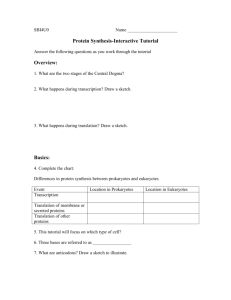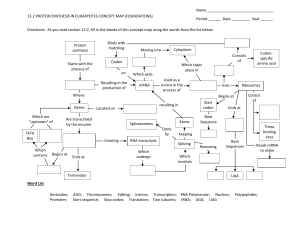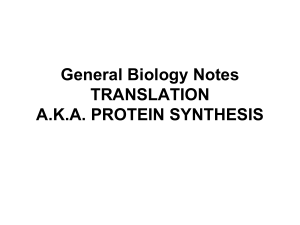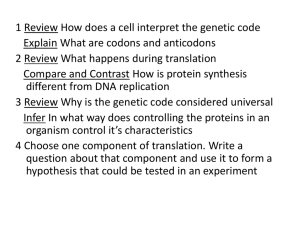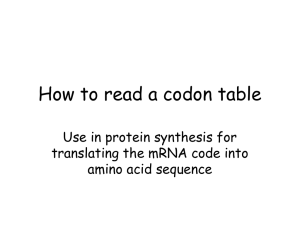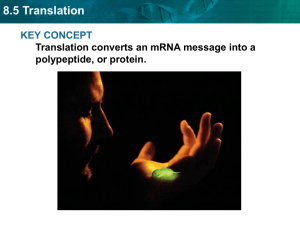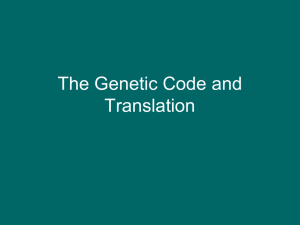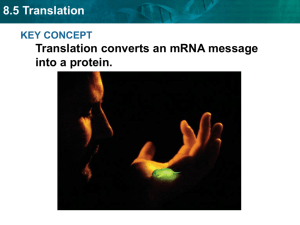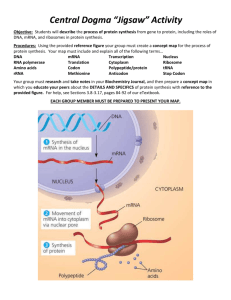Translation
advertisement
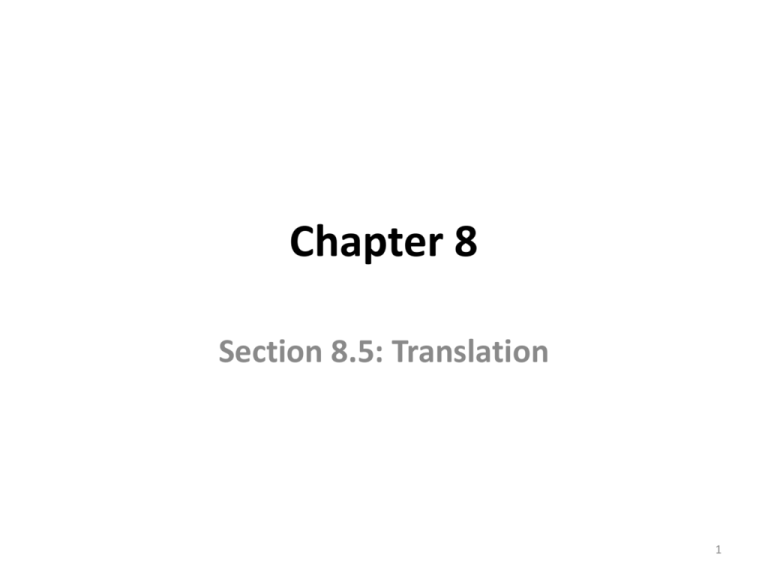
Chapter 8 Section 8.5: Translation 1 Objectives • SWBAT describe how mRNA codons are translated into amino acids. • SWBAT summarize the process of protein synthesis. 2 Vocabulary • • • • • Translation Codon Stop codon Start codon Anticodon 3 The Process of Translation • Translation is the process that converts, or translates, an mRNA message into a polypeptide. – One or more polypeptide chains make up a protein. • While DNA and RNA only use four nucleotides each in their codes, the language of proteins uses 20 amino acids. 4 Triplet Code • A codon is a threenucleotide RNA sequence that codes for an amino acid. • The genetic code matches each codon to its amino acid or function (the start/stop codons). 5 Triplet Code Methionine is the start codon while there are three stop codons. 6 Triplet Code – for Amino Acids • A change in the order in which codons are read changes the resulting protein. • Regardless of the organism, codons code for the same amino acid. 7 Anticodon • An anticodon is a set of three nucleotides that is complementary to an mRNA codon (a codon of CCC binds with an anticodon of GGG). • An anticodon is carried by a tRNA. 8 Ribosomes (rRNA) • The large and small ribosomal subunits pull mRNA through the ribosome, reading it one codon at a time. • The large subunit has three binding sites for tRNA’s anticodon. 9 Translation For translation to begin, tRNA binds to a start codon and signals the ribosome to assemble. A complementary tRNA molecule binds to the exposed codon, bringing its amino acid close to the first amino acid. 10 Translation • The ribosome helps form a polypeptide bond between the amino acids. • The ribosome pulls the mRNA strand the length of one codon. 11 Translation • The now empty tRNA molecule exits the ribosome. – A complementary tRNA molecule binds to the next exposed codon. – Once the stop codon is reached, the ribosome releases the protein and disassembles. 12
